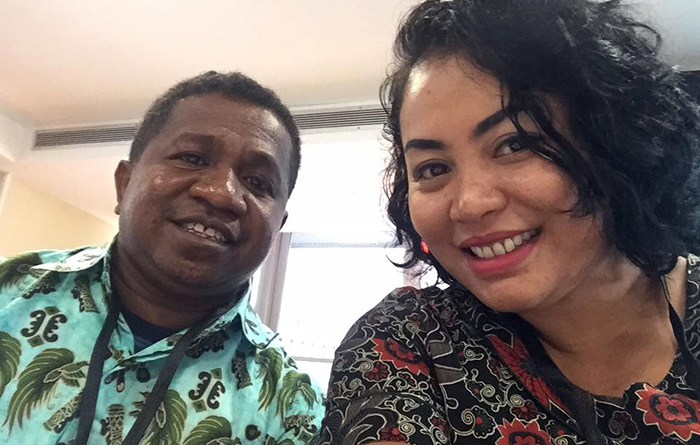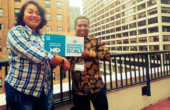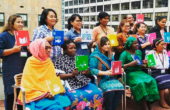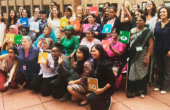September 17, 2017: Tonight, in New York City’s historic Town Hall Theater, the 2017 UNDP Equator Prize Award Ceremony will honour 15 outstanding indigenous and local community initiatives for their success in advancing local nature-based solutions for sustainable development.
In Manhattan to attend the ceremony and accept an Equator Prize award on behalf of the Raja Ampat Homestay Association is Association board member Stefani Arwakon, and Kristian Sauyai, the head of the Association management committee.
Impossible dreams
The photos in this post are taken from Stef’s Impossible Dreams album on facebook (thanks Stef!), which documents Stef and Kris’s experience in NYC so far. Never having visited the US ourselves, we can only imagine what that experience must be like – especially as this is Stef’s first trip outside Indonesia!
Impossible Dreams is an apt name. We simply couldn’t have imagined in 2011 that a tiny website and a handful of homestays which sat empty for most of the year, would in six short years develop together into a community organisation that has created more than 600 jobs and currently generates over 1.5 million USD per year for local village economies.
The achievement is a testament to the entrepreneurial spirit, concern for culture and environment, and unflagging effort brought to bear by the communities of Raja Ampat. The fact that community members with no prior business experience or knowledge of the hospitality industry could have come so far in such a short time bodes well for the realisation of their vision for the future.
Nik Sekhran, the UNDP’s Director of Sustainable Development, says:
We at UNDP believe that no one actor – not governments, not companies, not cities and not NGOs – can achieve the Sustainable Development Goals alone. We also believe that local action will be an essential component to achieve the goals. Local communities and indigenous peoples face the very real consequences of biodiversity loss and climate change daily – consequences which can mean life or death for their families, communities, and ways of life. The Equator Prize teaches us that these same communities excel in developing innovative tactics that deliver high-impact, scalable solutions to address these challenges and to achieve the Sustainable Development Goals.
The truth of that statement is reflected in the Homestay Association’s story. Association members were empowered by support provided by Seventythree, which was in turn funded by the Walton Family Foundation as part of the Foundation’s Bird’s Head Seascape Initiative. As Nik points out above though, the essential component is local action. For local action to succeed, it’s also essential that the initiative for that action comes from local communities.
If you’d like to know more, Seventythree’s field note “Redefining Conservation: How communities in Raja Ampat are shaping their world, and what their experience teaches us about empowerment.” describes how the communities of Raja Ampat charted their own course of action to achieve the success so deservedly recognised by tonight’s Equator Prize award ceremony.
So, to Stef, Kris, the Association and all its members, congratulations and our heartfelt thanks for inviting us to join in the journey to the realisation of your impossible dreams!
September 30 update
See the highlights of the Equator Prize NYC events in this video, and read more about 2017’s other winning community groups here.




